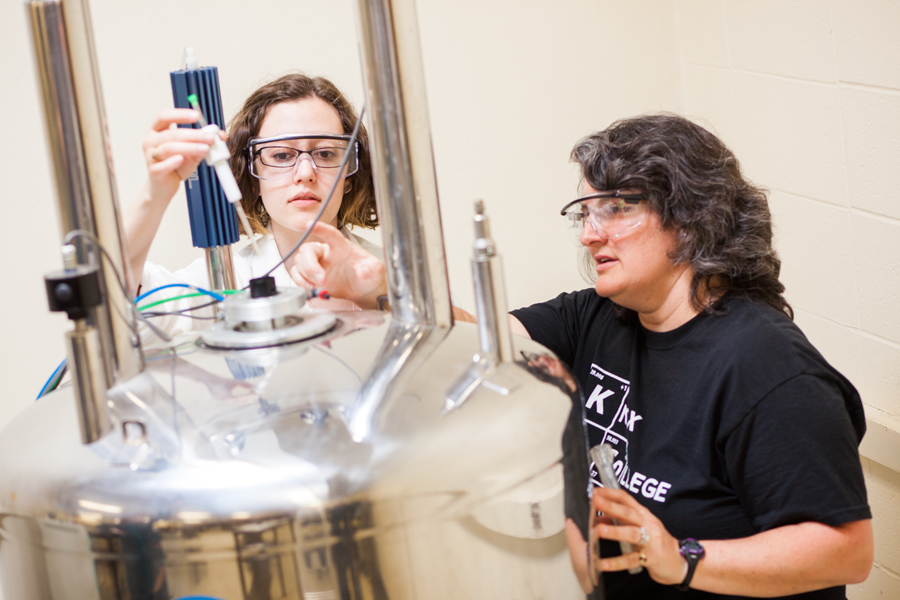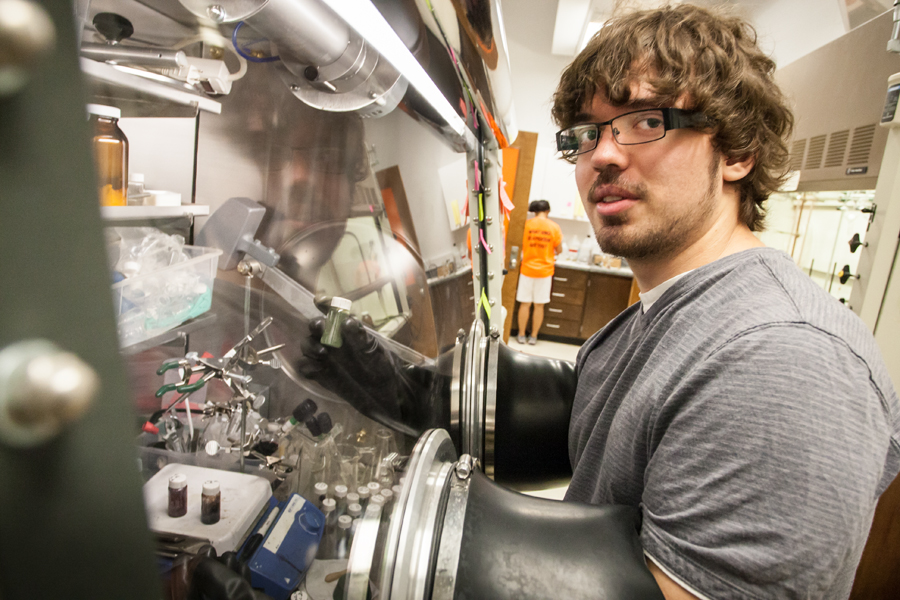

Research Equipment Grant from National Science Foundation
$292,100 for new, more powerful NMR spectrometer
Cermak's co-principal investigators at Knox are Helen Hoyt, assistant professor of chemistry; Katherine Adelsberger, associate professor of environmental studies and Douglas and Maria Bayer Chair in Earth Sciences; and Mark Shroyer, associate professor of physics.
"Modern science is a collaborative, multidisciplinary enterprise, and we are pleased to host students and faculty from Monmouth College and Illinois Central College who will come to Knox to conduct experiments and gain hands-on experience with the latest equipment," Behling said.
Among Knox's goals are incorporating exposure and training with the NMR into courses throughout the sciences, preparing students for advanced degrees in degrees and careers in what are known as STEM fields -- science, technology, engineering and mathematics.
Knox is among the leading colleges in the nation in the proportion of graduates who earn Ph.D.s in the physical sciences. According to figures compiled by the National Science Foundation, Knox ranks 32nd nationally among more than 1400 colleges and universities, and in Illinois is second only to the University of Chicago in Ph.D. productivity. In chemistry alone, nearly one-third of Knox chemistry majors have gone on to graduate programs, and Knox ranks in the top 4% of all institutions nationwide in the proportion of graduates who enter research-based Ph.D. programs.
Part of the College's success comes as a result of programs directed at preparing students from low-income, minority, and first-generation backgrounds for research-based graduate programs and careers. Knox's McNair Program is designed to encourage students to enter academic careers. The Creating Opportunities and Access in Science and Technology (COAST) program, supported by a grant from the National Science Foundation, aims at attracting students to graduate studies and careers in science and technology-related fields.
Published on August 01, 2014


